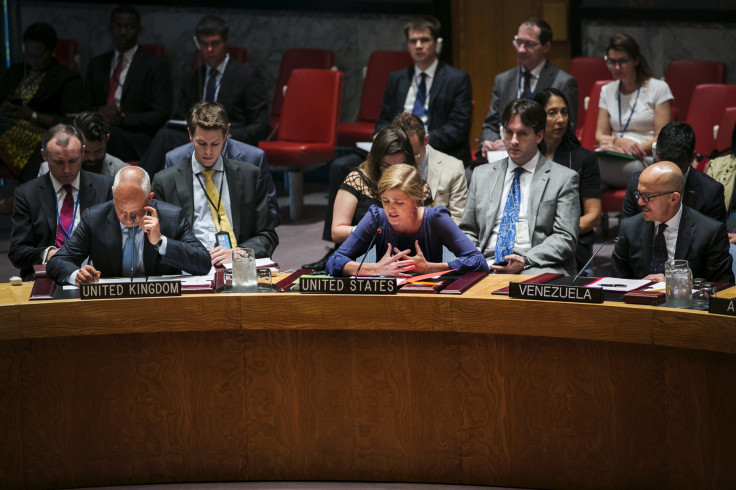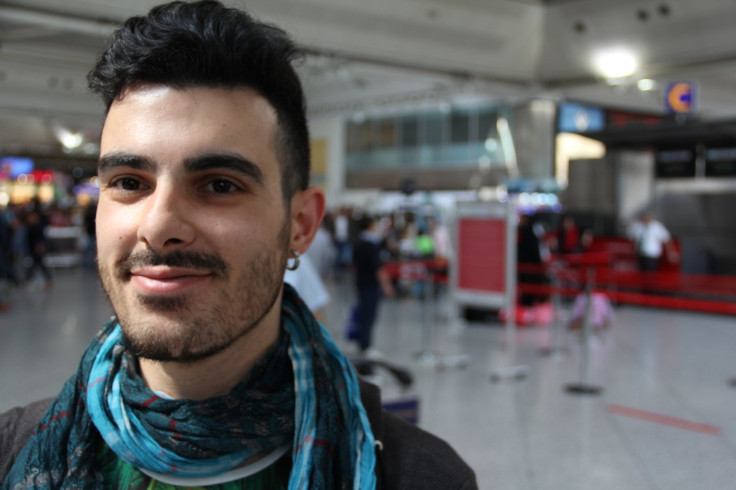ISIS LGBT Persecution: At UN Security Council Meeting, Gay Islamic State Victims In Syria And Iraq Discussed

Subhi Nahas, an openly gay Syrian refugee now living in the United States, says he fled homophobic brutality in his homeland. He told his story Monday to the United Nations Security Council in the panel's first-ever briefing on attacks against LGBT people in the Middle East by militants from the Islamic State group, also known as ISIS or ISIL.
Speaking in New York City to the U.N.’s key panel for international peace and security, Nahas said many of his lesbian, gay, bisexual and transgender friends have not escaped persecution by militants -- and that stopping the attacks requires immediate global intervention.
“My friends are feeling alone and terrified living in places where people who don’t fit into what others deem as 'normal,' are being persecuted and killed simply for who they are and what they believe,” said Nahas, who resettled in the U.S. with help from an international organization that tracks anti-LGBT violence on refugees.
“I’m receiving messages daily from my friends, who are terrified and feeling alone because of ISIL’s constant attacks, murders and infiltration, and shutting off of the one escape route to safety in Turkey,” Nahas said in a statement delivered to the council Monday morning.
While it was not the first time the persecution of gays and lesbians has been mentioned before the 15-member council that includes the U.S., Britain, China, France and Russia as permanent members, the panel had never convened to talk specifically about attacks on LGBT people anywhere in the world. The Security Council has previously discussed the impact of Islamist terrorism on global peace, but acknowledging sexual minorities in this way was an "important step" for expanding human rights, said Samantha Power, the U.S. ambassador to the U.N., who sponsored the meeting with her diplomatic counterpart from Chile.
Before today, the #UNSC had never had a meeting on #LGBT rights. This was long overdue—a small but important step that must not be our last.
— Samantha Power (@AmbassadorPower) August 24, 2015Heartbreaking account today by one man in hiding after being repeatedly attacked by ISIL & others: "In my society, being gay means death"
— Samantha Power (@AmbassadorPower) August 24, 2015Before his 2012 escape from Syria to Lebanon, Nahas had been on his way to college to study English translation when he was arrested and physically assaulted by Syrian soldiers, according to the Organization for Refugee, Asylum and Migration (ORAM), the nonprofit that helped him resettle in the U.S. Although the soldiers inexplicably allowed him to leave, hundreds of other people accused of being homosexual have been killed by ISIS militants, advocates said.
Militants released video footage that showed soldiers in June throwing four purportedly gay men from the roof of a tall building in the Syrian city of Deir ez-Zor, Britain's Mirror reported. Neil Grungras, founder of ORAM and an expert on LGBT refugees, told the council that it was in a position to support to gay and lesbian Syrians and Iraqis who are at constant risk of meeting a similar fate.
“It’s particularly important that this event is hosted by the U.N. Security Council,” Grungras said in a statement delivered to council members. “Of the millions of LGBTI people who face human rights abuses each year, only a handful manage to escape and become refugees. It is up to the nations of conscience represented here today to open their doors and give these refugees the safety they need.” [The LGBTI acronym adds the term "intersex," referring to individuals who possess both male and female characteristics.]

Jessica Stern, executive director of the International Gay and Lesbian Human Rights Commission, said U.N. agencies that are assisting refugees in Iraq and Syria should have programming that is tailored to LGBT individuals. The council should also pressure regional government leaders to make it easier for those fleeing persecution to access services and sanctuary in neighboring countries, Stern said in a statement to members.
“The international community must understand anti-LGBTI persecution as a component of how ISIS treats those it labels as ‘impure,’” Stern said. “We must recognize that these threats exist on a continuum of violence and discrimination before, during, and after [civil] conflict.”
© Copyright IBTimes 2024. All rights reserved.





















